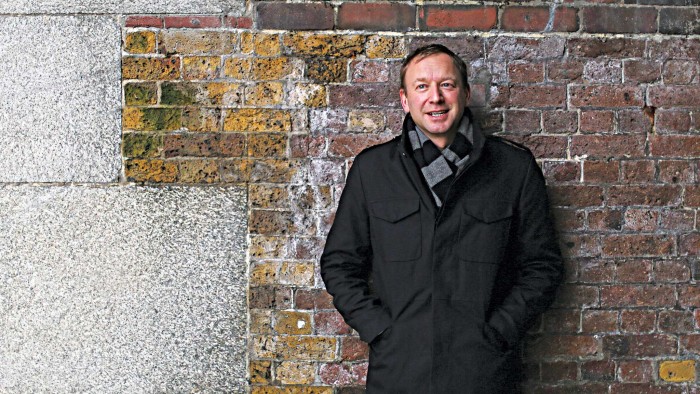Supply chain of information offers a vital link

Simply sign up to the Business education myFT Digest -- delivered directly to your inbox.
It is said that tremors from the powerful earthquakes that struck Japan’s Fukushima region last year were felt as far away as Beijing. But in the Munich headquarters of carmaker BMW, the rippled effects of the resulting tsunami and nuclear fallout were felt weeks later – a supply-chain aftershock that the German company is hoping will not be repeated, thanks to its work with some MBA students from Manchester Business School.
The quakes served as a reminder of how natural disasters, as well as other unexpected events, can disrupt and compromise supply chains in all kinds of industry.
Carmakers outsource the manufacturing of many components to so-called tier one suppliers to try to reduce complexity and costs. And like many vehicles, the entertainment, navigation and electric control systems in BMW cars are fitted with electronics parts from Japanese companies.
While BMW did not face any immediate post-Fukushima consequences, it took more than a week to analyse how its second- and third-tier suppliers were affected and how delivery stoppages of semiconductors and other electronics parts might affect the group’s production.
When it emerged eventually that a tier-one supplier could not deliver because a minor part was produced by a smaller sub-supplier in the Fukushima nuclear fallout zone, BMW decided it needed greater visibility and control over its supply chain.
Thanks to a friendship between Alexander Scholz, BMW’s head of programme, supply chain optimisation, and Tom Kirchmaier, an MBS lecturer, a group of MBA students has been helping BMW build a novel early-warning system that searches and sifts news and information from the internet about its suppliers.
The initiative began life a year ago as an International Business Project – a 10-week live consulting project that concludes the MBA at MBS and gives students an opportunity to gain real-life skills while demonstrating what they have learnt. Since then, the project has become a rolling assignment with students from either the IBP or the UK Consultancy Project, which is undertaken earlier in the MBA, taking on the baton from the previous group.
“The project is about exploiting unstructured information,” Dr Kirchmaier explains.
“There is an enormous wealth of information on the internet…but astonishingly, companies make very little use of it because it’s difficult to know how to source and select the right information and then condense it in a way that is useful and meaningful.”
Mr Scholz says he had already been considering how “web 2.0” technologies might help BMW understand more about its chain of about 10,000 suppliers, which manufacture components worth €30bn a year for the carmaker. As a result of the project, BMW is now trialling two tools that can read, search, sort and select large amounts of information in a systematic way, building up real-time profiles of each supplier and sub-supplier.
Additional information from earthquakes, other natural disasters and other threats to the supply chain are then added, flagged and displayed within Google Maps on a large screen. The information is also condensed, sorted and delivered to managers as text in an iPad app.
“When we first trialled the tools with a handful of suppliers, we discovered that one of them wasn’t able to pay its wages on time,” Dr Kirchmaier recalls. “Our system picked that up from the local newspaper of a small German town. It’s information that wouldn’t have filtered through unless there was a structured approach to collecting it.”
…
Aside from minimising risks to the supply chain, BMW is exploring how it might select suppliers using this system. For example, a Mexican supplier recently won a contract based on news unearthed about rapidly improving infrastructure in its locality.
“Organisations can be so dominated by their day-to-day business but our students have the luxury to stop, think and come up with good ideas.I don’t understand why more organisations don’t use this creative resource,” adds Dr Kirchmaier.
Comments